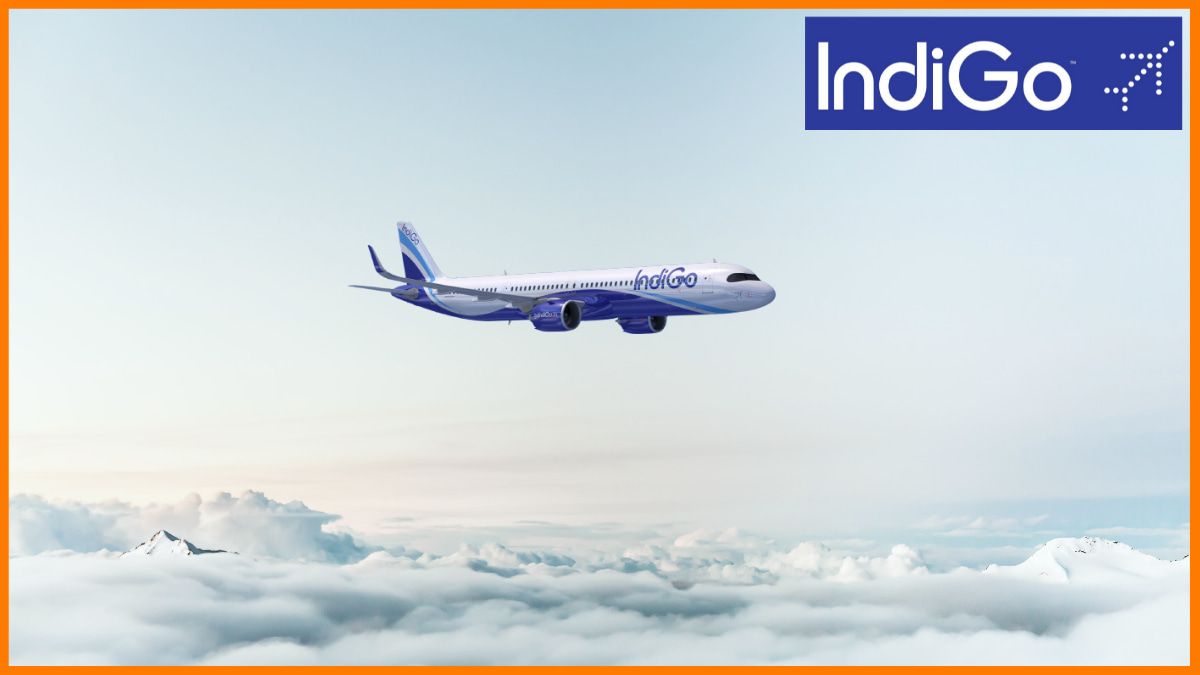IndiGo Airlines Case Study: History, Present, and Future
🔍Insights
IndiGo the largest domestic airline and the most pocket-friendly airline of India is the second-largest preferred airline in Asia.
As of August 2020, it will have a 59.24 percent domestic market share, making it India's largest airline by passengers carried and fleet size.
For the 2018–19 financial year, it was the largest low-cost carrier in Asia in terms of jet fleet size and number of passengers carried. A total of 87 destinations are served by the airline's 1,500 flights per day.
India's IndiGo has its headquarters in Gurugram. International Airlines' chief executive officer is currently Ronojoy Dutta.
The History of IndiGo Airlines
The current scenario of IndiGo Airlines
COVID Impact on Airline Industry
IndiGo Airlines Swift Recovery
The Future of IndiGo Airlines
Conclusion
FAQs
The History of IndiGo Airlines

2006
Founded in 2006 by Rakesh Gangwal, an NRI, and Rahul Bhatia, the head of InterGlobe Enterprises the stakes were split with InterGlobe having a share of 51% and the rest 49% shares belonging to Gangwal. IndiGo submitted a firm request for 100 Airbus A320-200 airplanes in June 2005 with plans to start tasks in mid-2006.
IndiGo took conveyance of its first Airbus airplane on 28 July 2006, from New Delhi to Imphal via Guwahati after one year in the wake of putting in the request.
2007
By the end of 2006, IndiGo had 6 airplanes and by the end of 2007 9 more airplanes were added increasing the total count to 15.
2010
Before the finish of 2010, IndiGo previously had 17.3% of the portion of the overall aviation industry, supplanting the state-run airline Air India as the third aircraft in India, behind Kingfisher Airlines and Jet Airways.
2011
In 2011, IndiGo submitted a request for 180 Airbus A320 airplanes in an arrangement worth US$15 billion. In January 2011, in the wake of finishing five years of tasks, the carrier got authorization to dispatch worldwide flights.
The first international service was between New Delhi and Dubai followed by flight services from New Delhi and Mumbai to Bangkok, Singapore, Muscat, and Kathmandu.
2012
August 2012 marked as a turning point for IndiGo, when it surpassed Jet Airways in terms of market shares(a whopping 27%) and became the largest airline in India
IndiGo works over 647 day-by-day trips to 39 destinations, 34 in India and 5 global.
2017
In 2017, IndiGo turned into the primary Indian transporter to work 1000 flights per day and, with the conveyance of the 31st Airbus A320neo airplane, an armada of 150 airplanes.
IndiGo additionally took conveyance of its first ATR 72 600 airplanes in December.
2018
In 2018, IndiGo kept on extending its worldwide course organization to 15 objections, adding everyday direct trips to Hong Kong, Doha, Phuket, and Istanbul.
IndiGo won the ‘Best Low-Cost Airline in Central Asia & India’ award for nine consecutive years till 2018.
IndiGo abides by three values: punctuality, pocket-friendly airfare, and quality experience.
The current scenario of IndiGo Airlines

Adhering to their original idea of being a pocket-friendly airline (LLC: Low-cost carrier) IndiGo offers just Economy Class seating and doesn't give on any of its trips in-flight entertainment or free dinners (however it has a purchase on-board in-flight supper program).
Premium administrations, with extra advantages like pre-relegated seats and meals ready, are offered at a higher rate.
COVID Impact on Airline Industry
The global pandemic has hit the airline industry across the world at an alarming rate. IndiGo has suffered a severe impact due to the lockdown scenario.
India has suspended domestic and global flight activities somewhat recently in March to control the Covid spread in the country.
The domestic flight administrations continued on May 2020 in a restricted way. Aviation workers still are permitted to work with only a 45% capacity as of May 2021.
The income from activities plunged 91.9% year-on-year to ₹766.7 crores during the June period. Between April and December 2020, IndiGo announced overall deficits of Rs 4,659 crore, while incomes shrank 67.5 percent year-on-year.

IndiGo Airlines Swift Recovery
Despite all these complications, the fact that IndiGo has made a swift recovery is noteworthy. It has brought the aviation industry to 80% of its pre-pandemic stage. IndiGo took 44 planes from Airbus SE in 2020 - the vast majority of any client and fixing Delta Air Lines Inc and China Southern Airlines Co Ltd - as it supplanted more seasoned planes with more eco-friendly fresher models. It is additionally outfitting to grow its armada further from 2023.
With a 52% domestic share of the market in 2020 versus 47% in 2019 and benefit insight following a loss last financial year that is in 2019, IndiGo is extending its range to more modest Indian urban communities like Ranchi, Patna, and Gorakhpur.
By the end of 2021, IndiGo is confident and optimistic that it will get back to normal and continue delivering top-notch service to its flyers. As of June 2021, IndiGo is the 7th largest airline in the world.

The Future of IndiGo Airlines

Ronojoy Dutta, CEO of IndiGo claims that IndiGo is out of crisis and says that he is optimistic about the future. Despite the multitude of issues the business is confronting, IndiGo's year-over-year yields have gone up 8% and that is generally because individuals have more prominent trust in the IndiGo item and it appears in two regions and specifically in contract flights.
IndiGo is excelling on contract flights and simultaneously, its gathering work area is occupied. IndiGo's main goal is to create extraordinary availability for India from little urban communities to enormous urban communities to nations around us.
Development is vital for IndiGo.
Accordingly, the main concern technique is to continue reducing airfare and continue developing quickly hence associating the whole country. Since IndiGo's growth had been curbed for nearly 2 years due to the global pandemic, Ronjoy Dutta, the CEO claims that growth and expansion of the industry are very crucial at this point.
IndiGo has a four-corner strategy. From Delhi, we can go to a ton of places within six hours. From Mumbai, many spots in Africa; from Chennai bunch of spots in the southeast and Kolkata loads of spots in north Asia. IndiGo will cover every one of them.
The industry plans on reaching small towns, small cities, and other remote locations like Ladakh where flight connectivity is almost non-existent, and other international destinations where India has never flown to (yet).

Conclusion
Although for the next 2 years IndiGo expects a slight decline in growth due to the pandemic situation, the airline industry currently focuses on increasing productivity and providing a quality, top-notch experience to its flyers.
FAQs
When was Indigo airlines founded?
IndiGo was founded in 2006 as a private company by Rahul Bhatia and Rakesh Gangwal.
What type of aircrafts does IndiGo fly?
IndiGo operates the Airbus A320 CEO & NEO, the A321 NEO and the ATR 72-600 aircraft.
How many cities does IndiGo fly to?
IndiGo has a total destination count of 90 with 66 domestic destinations and 24 International.
Who is owner of IndiGo Airlines?
IndiGo Airlines is operated by Interglobe Aviation Limited. Rahul Bhatia and Rakesh Gangwal are the owners of Indigo Airlines. Rahul Bhatia of InterGlobe Enterprises higher stake in IndiGo than the co-founder Rakesh Gangwal.
Must have tools for startups - Recommended by StartupTalky
- Convert Visitors into Leads- SeizeLead
- Website Builder SquareSpace
- Run your business Smoothly Systeme.io
- Stock Images Shutterstock






